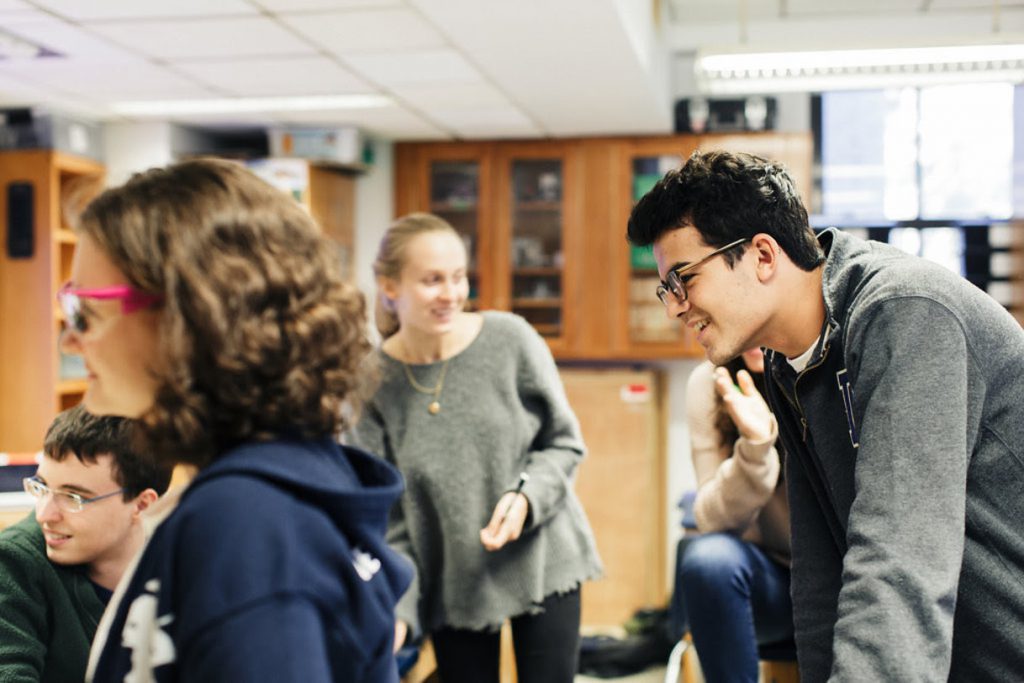10 Education Predictions for 2018
This is a vibrant and exciting time to be in education. Continuing to conduct business as usual is a shrinking option for our schools as other sectors more nimbly embrace change and innovation. Additionally, the number of schools and teachers actually doing this work is increasing, creating a network of individuals and institutions pushing one another to new heights. Here are ten predictions for 2018 based on inspiring examples we’ve seen building momentum in our schools.
Wellness
There’s growing evidence that modern students’ mental health is at risk. We’re going to see stronger efforts to help our kids practice healthy habits, while thinking deeply about the systems we have in place that propagate unhealthy ones.
Coaching
Schools are seeing the benefits of coaching faculty taking the place of annual classroom evaluation visits. Asking questions, authentic engagement, and professional reflection is driving growth and empowerment. We know students learn when they are given feedback, reflect on their own work, and practice the changes they want to see. Administrators are recognizing that supporting their teachers’ learning isn’t that different.
Skilling up
Often institutions are okay with their early adopters being the group to try new tools, put into practice new approaches to their work, or leaning into new ideas. But what about everyone else? We’re going to see a trend away from professional learning as choose your own adventure to a model of learning for faculty where everyone is expected to level up their skills in order to drive school-wide PL initiatives.
Competency-based learning
Schools need to help students demonstrate the skills they’ve acquired, practiced, and mastered. One of the ways we’ll begin to see this is through competency-based learning, credentialing student understanding, and skill-building. Movements like the Mastery Transcript Consortium are pulling together schools to concretize what this will look like for our students.
Local learning
Getting out and experiencing our cities, neighborhoods, and people will drive incredible experiential learning opportunities. In turn, we will need to think differently about seat time, assessments for learning, and how students connect with the world, each other, and their teachers.
Networking schools + teachers
Our schools replicate numerous business practices that networks of schools can share, significantly lowering infrastructure costs. Resource sharing, too, has economies of scale that networked schools can take advantage of. Prepare to share.
Microschools
We’ve seen several examples of microschools launch over the past few years, some as networks and others launching as extensions of existing schools. We’ll begin to see more variations of this from schools launching smaller off-site programs and schools.
Hybrid learning experiences
With more and more teachers learning how to leverage both online and in-person learning elements to promote connection, we’ll see an increase in hybrid learning experiences that blur what we mean by, and how we approach, time in schools. (See our partnership with African Leadership Academy as one example).
Learner data
We hear a lot about big data, but we’re going to hear more about learner data, and teachers will better understand how to make use of it to support their students’ learning. K-12 schools will begin to give the data directly to students as a form of feedback to help them make better decisions.
Remote working
We’re seeing some schools embrace remote working even for faculty who need flexibility in their schedules, and who have an interest in rethinking what modern learning looks like. As a result, some schools are allowing teachers to only be on campus a certain number of days each week or month. Mimicking what the modern workforce looks like, these schools are pushing the limits of how we might define what a faculty looks like at a school. Expect to see more schools embracing successful models from other sectors.
With a growing appetite for innovation in our schools we are beginning to see broader adoption of many of these ideas. 2018 has the potential to be a tipping point, and as we hear from many of our colleagues, it’s one of the most exciting times ever to be in education.
What trends do you see on the horizon at your school, or within the educational community? Share with us on Twitter @GOALearning or send us an email at hello@GlobalOnlineAcademy.org.
Global Online Academy (GOA) reimagines learning to empower students and teachers to thrive in a globally networked society. Professional learning opportunities are open to any educator. To sign up or to learn more, see our Professional Learning Opportunities for Educators or email hello@GlobalOnlineAcademy.org with the subject title “Professional Learning.” Follow us on Twitter @GOALearning. To stay up to date on GOA learning opportunities, sign up for our newsletter here.

